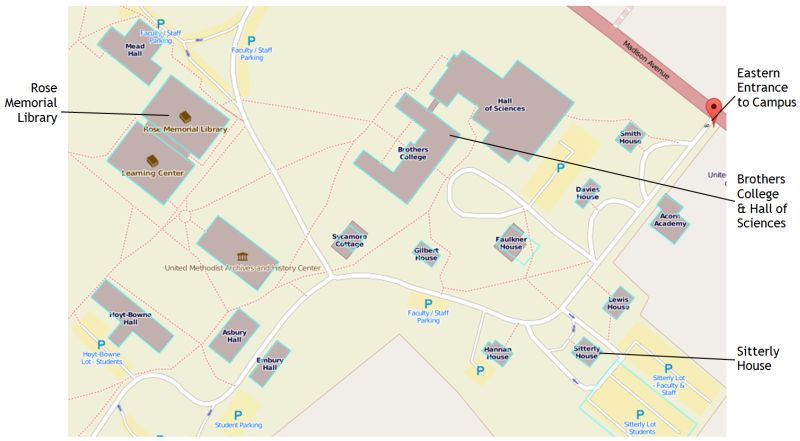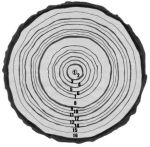|
ENGL 110 G Download the course policies and syllabus (PDF).
"Because today we live in a society in which spurious realities are manufactured by the media, by governments, by big
corporations, by religious groups, political groups...So I ask, in my writing, what is real?"
|
HENRY JENKINS, media scholar and professor, argues, "Most often, when people are asked to describe the current media landscape, they respond by making an inventory of tools and technologies. Our focus should be not on emerging technologies but on emerging cultural practices. Rather than listing tools, we need to understand the underlying logic shaping our current moment of media in transition." In other words, to better understand media--from writing to gaming--is to understand not only the mediums themselves but our relationship to and with those mediums. This course then offers an overview of the history, technological changes, and cultural and critical significance of contemporary media, including print, electronic media (radio, television, film), and digital ("new") media (internet, social media, mobile media, digital games). We will explore the forms and function of media, media and its relationship to information and communication, and the intersections of media and culture. A REQUIREMENT for this class is a well-developed curiosity and a willingness to explore and interrogate interdisciplinary lines of inquiry. Our class will be organized around a survey of readings engaging scholarship, old and new media, and popular culture. This class will take up reading, listening, watching, and even playing as critical practice, and think about the ways everyday media can be deployed as theory, as dramatizing the concerns, wonders, struggles, and politics of lived life and experience. This class will spend the semester reading, thinking, playing, researching, and writing about various media and how and what these media argue, reveal, narrate, hide, perpetuate, and complicate the world we live in. SPECIFICALLY, our course goals include:
• Historicizing: we will place media in their historical period and articulate continuities and
differences with media/periods which precede and follow it. |
"The medium is the message."
Required Course Texts & Materials
• ENGL 110 Course Reader (available in Sitterly 108) |
|
Course Requirements
Media Object Presentation (10%) |
Requirements & GradingYour grade should not be the sole exigence or motivation for this class. It is the hope of the course that you walk away from English 110 with something more. Find some pleasure and some edification and some knowledge from this class (or any class really) and success is usually not far behind. With that in mind, your grade will be a reflection of engagement, effort, close reading, critical thinking, writing, and participation. Media Object Presentation (10%) You will be a required to sign up for an oral presentation once during the quarter. For your presentation, you will read the texts assigned for that week, select a media object, a specific example, and then generate a set of connections, provocations, and questions to get class discussion started for the day. Presentations are 5-10 minutes and may be done individually or in pairs. Midterm (20%) and Final Exam (20%) You will have two in-class exams, which will consist of identifications and short answer questions. Exams will be cumulative and based on the class readings, media objects, and class discussions. Media Studies Final Project (20%) At the end of the semester, you will do a final project related to a specific media form we have explored, that draws on specific terms, concepts, or issues we have engaged with in class, and that articulates the importance of a critical relationship to media. The project asks you to make connections and to create an argument across different kinds of evidence. Your final project can be a traditional research paper, a media production (which includes a substantive analytical component), or a hybrid of the two. See the final project prompt for more details and explanations. Participation and Preparedness (30%) Preparedness and participation forms a large component of your final grade. It is essential that you prepare for class, attend class, and participate. Missing class may seriously compromise your ability to do well in this class. Moreover, negative participation will hurt your participation grade. Participation is determined by 1) your respectful presence in class and interactions with me and others, 2) your willingness to discuss, comment, and ask questions, 3) your preparation for class, which includes bringing required materials to class and doing all of the assigned reading for class, 4) your engagement in presentations and group work, and 5) your care and use of the class moodle--henceforth called the "class blog"--bookmark the address, check and comment regularly, think of the blog as an extension of class: https://moodle.drew.edu/2/course/view.php?id=1431
Finally, failure to turn in homework, incomplete assignments, or late papers will negatively impact your participation grade.
|
Download the course policies and syllabus (PDF). |
|
|
Attendance
Attendance is required. If you are absent, you miss the explanation of an assignment, the discussion of a reading,
the chance to participate, and overall, the class as a community of learning. Also, you are expected to be in class
on time. Class will start immediately at the appointed time. In the first minutes of class I may make important
announcements, establish the agenda for the class meeting, begin immediately with an important lesson, or field
questions. If you come in after we start class, even by only a few minutes, you are late you will be marked as such.
Chronic or conspicuous attendance problems will negatively affect your overall participation grade for the class.
Moreover, absences for more than eight class session (50% of class time) will result in a failing grade regardless of reason. There are no excused or unexcused absences.
If you know you are going to or must miss class, please let me know (via email) as soon as possible and make any
necessary arrangements. When you do miss class, always find another student to get class notes or see me during
office hours in order to make up missed work in a timely manner. You are always responsible for all material
covered during your absence.
|
|
|
MLA Paper Formatting 1) 1" margins top, bottom, left, and right on each page. 2) Single-spaced block header on the first page only with your name, date, course, my name:
Student Name 3) Appropriate title. 4) Print single-sided. Papers are double-spaced with paper page numbers in the upper right hand corner; no extra space between paragraphs. 5) Standard Times Roman Font, 12 point only. 6) Correct MLA citation and bibliographic format. A paper turned in without a bibliography automatically fails and will be returned with no comments. |
Assignment FormatAll papers must be typed or produced on a word processor. All documents should be saved in Microsoft Word format; if you do not have access to Word, then save your documents in PDF or Rich Text Format (RTF). All papers must follow the manuscript format outlined by the assignment. All papers must use MLA citation and documentation conventions. All papers must be neatly printed (in black), single-sided, stapled in the top, left-hand corner if necessary, and not be three-hole punched. Papers that do not follow these format guidelines will not be accepted. They will be returned unread to you. Papers will be regarded as late until they are resubmitted in the proper format. Response Papers and the Critical Review have different manuscript guidelines detailed by their assignment prompts. Always make a backup copy of every paper you turn in, lest you be one of the unhappy people whose paper is eaten by the computer. You may even want to take the precaution of e-mailing your paper to yourself as an attachment at least a couple of times during the drafting process and certainly BEFORE you exit the document for the last time and leave the computer. This way, even if you lose your flash drive or your paper gets mysteriously erased, you still have a copy in your e-mail files.
Evaluation RubricOver the course of the semester, your assignments will receive feedback and comments that will identify what you are doing well and what still needs improvement. Your grades assess your fulfillment of the assignment, the quality of work, detail, analysis, and argumentation, overall effort, and finally, style, polish, and risk taking. Consider the following evaluation rubric as signposts or a kind of legend to your progress and evaluation:
• Outstanding (A/A+): Offers a very highly proficient, even memorable demonstration
of the trait(s) associated with the course or assignment goal(s), including some
appropriate risk-taking and/or creativity. |
Late Assignments All assignments must be done completely and turned in on time. Late assignments will be penalized half a grade for every day that they are late. So, if your essay is late by one day and you received a B- for your work, then your final grade would be a C+. Moreover, I will not comment on late work. However, you still need to complete late work or you will receive a zero. If you miss class on the due date of a paper, you must notify me and make arrangements to get the paper to me as soon as possible. Unless previously arranged, I DO NOT accept assignments via email. Remember that a paper has not been officially handed in until it is in my hands. Never turning anything in late is always the best policy. |
|
Contact Ed
Office:
Download the course policies and syllabus (PDF). |
Finding HelpMy office and office hours are listed in the left sidebar. I am available during that time and by appointment to help you. I encourage you to come see me early in the semester even if it is just to talk about the class, about the assignments, or about school in general. I may ask you to meet with me when I think a conference would be useful. My office is located on the third floor of Sitterly House (southeast of Brothers College), Room 303. See http://www.drew.edu/map/#building=sitterly.

I am also available electronically by email and the course blog. Email and the blog are the best means of contacting me. I will do my best to answer your emails and blog posts, usually within twenty-four hours. If there is an emergency and you need to reach me, please contact the main English office in Sitterly 108. Furthermore, when time permits, I will supplement my office hours with virtual hours via AOL Instant Messenger or Google Talk (nickname: EDagogy); if I am logged in, during reasonable hours, you are more than welcome to discuss the class or ask questions. Please, when you initiate an IM conversation for the first time, please identify yourself to me; also, be patient because my responses may not be immediate. You can find additional writing help at the Drew University Writing Center, a good resource for this class and other classes. The Writing Center is located on the first floor of Brothers College (opposite Java City) and offers a variety of services including help with papers, brainstorming ideas, help with reading, and research. See http://www.drew.edu/writingstudies/writing-center to make an appointment and for more information.
Further resources, both on- and off-campus can be found on the Links page of the course website:
http://www.edmondchang.com/110/links.html.
|
|
|
|
Learning (With) TechnologyUnless you have an official accommodation, the use of technology in our classroom is a privilege, not a right. Mobile devices like phones, media players, and cameras should be off and put away. Computers and tablets should be used for note-taking, in-class work, and readings only. Print is generally preferred for course texts and readings, but full-size e-versions are acceptable provided the student is able to readily highlight, annotate, and index. Finally, be conscientious and respectful in the use of the course website and social media and post no material from class to the internet or non-class sites without explicit permission from the instructor and the class. Keep in mind these three rules: 1) Use the Right Tool for the situation and the task--keep it simple and elegant, 2) Practice Best Practices--it must improve or enhance your learning, 3) Be a Good Neighbor--it cannot distract or detract from others' learning. Inappropriate use and abuse of technology in class will result in the taking away of technology privileges for the offending student and/or class as a whole.
Academic DishonestyAll students are required to uphold the highest academic standards. Plagiarism, or academic dishonesty, is presenting someone else's ideas or writing as your own. In your writing for this class, you are encouraged to refer to other people's thoughts and writing--as long as you cite them. Many students do not have a clear understanding of what constitutes plagiarism, so feel free to ask questions at any time. For our class, plagiarism includes:
• a student failing to cite sources of ideas If you have any doubt about how to cite or acknowledge another's writing, please talk to me. It is always better to be safe than sorry. Any case of academic dishonesty will be dealt with according to the guidelines and procedures outlined in Drew University's "Standards of Academic Integrity: Guidelines and Procedures." A copy of this document can be accessed on the CLA Dean's U-KNOW space by clicking on "Academic Integrity Standards." Play it smart, don't plagiarize!
Accommodations
Should you require academic accommodations, you must file a request with the Office of Disability Services (BC 119B,
anambiar@drew.edu). Please use the link:
http://www.drew.edu/academicservices/disabilityservices/register.
It is your responsibility to self-identify with the Office of Disability Services and to provide faculty with
the appropriate documentation from that office at least one week prior to any request for specific course
accommodations. There are no retroactive accommodations. The deadline to request Letters of Accommodations
(LOAs) for all students currently registered with the Office of Disability Services is 02/10/2014.
|
"Many a small thing has been made large by the right kind of advertising."
|
|
|
© 2013-14 Edmond Chang. All original material. All rights reserved. Contact the webmaster of this site. These pages are best viewed with Mozilla Firefox or Internet Explorer. Open your browser to the largest viewable area. These pages are hosted by ED(MOND)CHANG(ED)AGOGY, the academic, professional, and creative website of Edmond Y. Chang. |
|
















